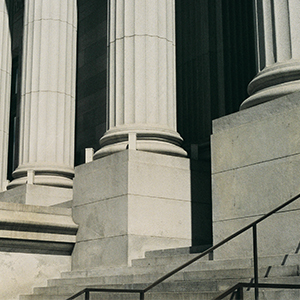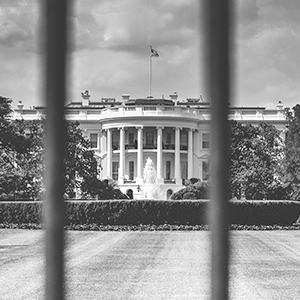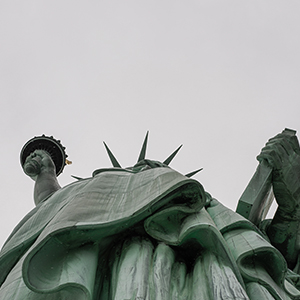Menu
Hot-Topics
February 5, 2026 | SCOTUS Decision in Bowe v. United States Is First of the 2026 Term
Category: Historical

Worcester v Georgia: Indian Sovereignty and the States
In Worcester v Georgia, 31 U.S. 515 (1832), the U.S. Supreme Court held that the Cherokee Nation was sovereign. It also ruled that the federal government — and not the states — was authorized under the Constitution to deal with Indian nations. ...

Cherokee Nation v Georgia: The Rights of Indian “Nations”
In Cherokee Nation v Georgia, 30 U.S. (5 Peters) 1 (1831), members of the Cherokee Nation sought to enjoin the state of Georgia from seizing their land. However, the U.S. Supreme Court held that it lacked the authority to enforce the rights of Native...

Craig v Missouri Interprets Prohibition of Bills of Credit Under Article I
In Craig v Missouri, 29 U.S. 410 (1830), the U.S. Supreme Court held that a Missouri statute authorizing loan certificates issued by the state violated Article I, section 10 of the Constitution, which prohibits states from issuing bills of credit. ...

Weston v City Council of Charleston: What Is a “Suit?”
In Weston v City Council of Charleston, 27 U.S. 449 (1829), the Supreme Court held that a city ordinance taxing interest-bearing stock of the United States was unconstitutional. The Court specifically found that the tax burdened the enumerated power ...

Willson v Black Bird Creek Marsh Company: The Dormant Commerce Clause
In Willson v Black Bird Creek Marsh Company, 27 U.S. (2 Pet.) 245 (1829), the U.S. Supreme Court held that a Delaware state law authorizing the building of a dam did not unconstitutionally usurp Congress's powers under the Commerce Clause because the...

Brown v Maryland: Import Taxes on Foreign Goods
In Brown v Maryland, 12 Wheat. 419 (1827), the U.S. Supreme Court held that a Maryland law requiring importers of foreign goods to obtain a license violated the Constitution’s prohibition on import taxes and undermined federal authority over inters...

Ogden v Saunders: The Contracts Clause
In Ogden v Saunders, 25 U.S. 213 (1827), the U.S. Supreme Court held that a New York bankruptcy law did not violate the Constitution’s Contracts Clause. The case is also most remembered as the only decision from which Chief Justice John Marshall...

Wayman v Southard: The Limits of Non-delegation
In Wayman v Southard, 23 U.S. 10 Wheat. 1 1 (1825), the U.S. Supreme Court first grappled with the doctrine of non-delegation, under which one branch of government can’t delegate its constitutionally authorized power to another. In the decision, Ch...

Martin v. Mott: The President’s Power Under the Militia Clause
In Martin v. Mott, 25 U.S. 19 (1827), the U.S. Supreme Court addressed the Constitution’s Militia Clause. It held that the President, as commander in chief, has the unilateral power to call up state militias for duty during times of war. ...

Osborn v Bank of the United States Clarifies Reach of Federal Jurisdiction
In Osborn v Bank of the United States, 22 US. (9 Wheat.) 738 (1824), the U.S. Supreme Court addressed Article III’s grant of judicial power over cases “arising under” federal law. In his opinion, Chief Justice John Marshall broadly interpreted...
Previous Articles
SCOTUS Rules State Can’t Immunize Parties from Federal Civil Liability
by DONALD SCARINCI on January 29, 2026
In John Doe v. Dynamic Physical Therapy, LLC, 607 U.S. ____ (2025) the U.S. Supreme Court held that...
Supreme Court to Address Racial Discrimination in Jury Selection
by DONALD SCARINCI onWhile the U.S. Supreme Court has concluded oral arguments for the year, it continues to add cases t...
Supreme Court Halts Deployment of National Guard to Chicago
by DONALD SCARINCI on
In Trump v. Illinois, 607 U.S. ____ (2025), the U.S. Supreme Court refused to stay a district court...
The Amendments
-
Amendment1
- Establishment ClauseFree Exercise Clause
- Freedom of Speech
- Freedoms of Press
- Freedom of Assembly, and Petitition
-
Amendment2
- The Right to Bear Arms
-
Amendment4
- Unreasonable Searches and Seizures
-
Amendment5
- Due Process
- Eminent Domain
- Rights of Criminal Defendants
Preamble to the Bill of Rights
Congress of the United States begun and held at the City of New-York, on Wednesday the fourth of March, one thousand seven hundred and eighty nine.
THE Conventions of a number of the States, having at the time of their adopting the Constitution, expressed a desire, in order to prevent misconstruction or abuse of its powers, that further declaratory and restrictive clauses should be added: And as extending the ground of public confidence in the Government, will best ensure the beneficent ends of its institution.
Awards





